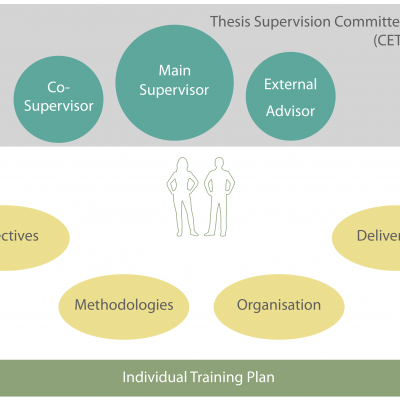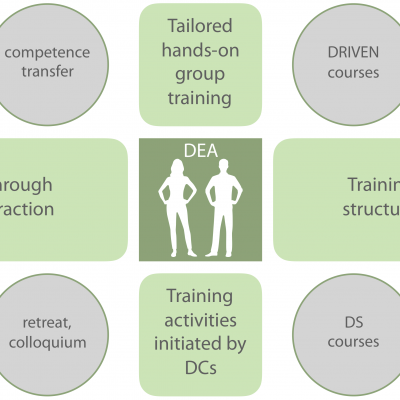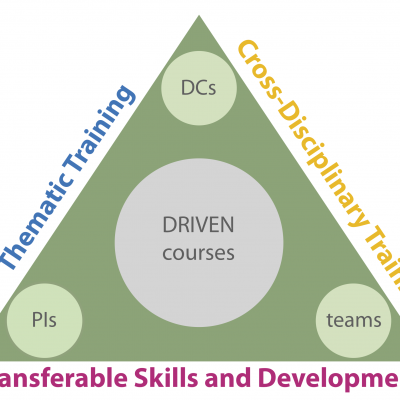DRIVEN guides all elements of doctoral training and career development through achieving research excellence, supporting its Doctoral Candidates to become creative, critical and autonomous intellectual risk takers, with the potential ability and confidence to push the boundaries of scientific knowledge. Our attractive, supportive environment as institutions, teams and individuals will empower them to take responsibility for the scope, direction and progress of their research project. DRIVEN’s conceptual approach is based on interdisciplinarity, which is continued and intensified at the doctoral training level. The scientific network of the Principal Investigators provides rich options for the Doctoral Candidate’s later exposure to industry, public institutions or other potential employment sectors as well as access to a range of international scientific communities and mobility opportunities.
DRIVEN is integrated into the existing doctoral education and training environments at the involved faculties of the University of Luxembourg. Our DTU is an integral part of the transversal Doctoral Programme in Computational Sciences, organised across the Doctoral School in Science and Engineering (DSSE) at the Faculty of Science, Technology and Communication (FSTC), the Doctoral School in Humanities and Social Sciences (DSHSS) at the Faculty of Language and Literature, Humanities, Arts and Education (FLSHASE) and the Doctoral School in Economics and Finance (DSEF) at the Faculty of Law, Economics and Finance (FDEF). This structure provides the necessary framework to develop DRIVEN’s innovative doctoral training strategies.




